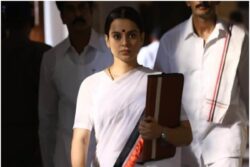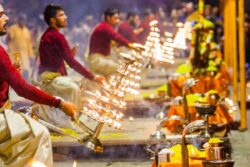Highway movie review

Music: A R Rahman
Director: Imtiaz Ali
Writer-director Imtiaz Ali has hit a road less taken. The result is a stylish two-hander that is defiantly unconventional, if not entirely satisfying.
Shot on stunning locations spread from Delhi all the way up to the slopes of Himachal Pradesh and Kashmir, via the plains of Rajasthan and Punjab, the film yields bewitchingly beautiful images.
But it isn’t just the visual and auditory delights on offer that make Highway a sensitive, understated entertainer.
Its two exceptional characters sway to the kind of subtle emotional riffs that usually elude mainstream Hindi cinema.
Days ahead of her wedding, Veera Tripathi (Alia Bhatt), happy-go-lucky daughter of a politically connected Delhi tycoon, goes for a spin on an impulse in her beau’s swanky sedan.
At a deserted gas station off the highway, the city girl is abducted by a gang led by a gruff, rustic criminal, Mahabir Bhati (Randeep Hooda).
The petrified lass is shoved into the back of a mini-truck and driven off to a hideout in the city’s outskirts.
Realising that a ransom call to her dad would be an invitation to big trouble, Mahabir decides to go into hiding with his quarry.
Veera is whisked away first to Ajmer Sharif and from thence to a seedy bolt-hole in the middle of an erosive salt pan in Rajasthan.
When the shock subsides the Stockholm syndrome kicks in. The lady in distress develops a bond with the tormentor.
Up until this point, Highway, notwithstanding the off-beat captor-captive dynamics, looks like standard fare.
But the back stories that emerge as well as the ride ahead contain startling twists.
The loquacious Veera has a dark secret buried in her past. The strong-headed Mahabir, on his part, is nursing the effects of a rough childhood.
As they begin to chip away at each other’s brittle outer shells, an extraordinary love story, shorn of all hints of carnality and built solely on the need for mutual solace, takes shape.
Not all of it is convincing though. For one, the heroine’s shift from the initial pangs of fright to the ultimate sense of freedom in captivity appears arbitrarily rushed.
Moreover, the gangster’s messed-up mind is revealed only in sporadic, fuzzy snatches.
It is established a bit facilely that crime is the bitter man’s rebellion against wrongs heaped on his mother by an abusive father and an unfeeling society.
Impressive vistas and an eclectic musical score made up of a lullaby, a pop mash-up and Sufi ditties, among much else, provide the backdrop to the girl’s outward and inward voyage of discovery.
Highway bears the unmistakable Imtiaz Ali stamp. The songs are niftily integrated into the narrative; the focus is squarely on the plot; and the female protagonist isn’t a mere object of desire.
The film would have been a bigger triumph had the plot, which hinges on a collision between two diametrically dissimilar individuals and worlds, packed a little more punch.
As the slim storyline unfolds, it becomes clear that the hostage-taker and the victim, despite coming from different ends of the Delhi NCR social spectrum, have a lot in common.
Their scarred psyches draw them closer to each other, but not in the manner associated with standard screen romance.
It is here that Highway takes a wonderful detour into fresh territory.
It adopts a novel mode to address issues pertaining to the class and culture divide, the exploitation of women in feudal communities, and the safety, or lack of it, of the girl child within and without the family.
Imtiaz Ali litters the narrative with little touches that speak of human connections in ways that are disarmingly simple but effective.
Veera asks her captor: “What do you like more – the sea or the mountain?”
“I have never seen the sea,” Mahabir replies. “I love the mountains too,” the girl concludes airily.
A little later, Veera is perched on a rock in the middle of a gushing river, the waters swirling all around her.
We do not hear her, but see her guffawing and gesticulating uncontrollably, visibly asking herself why she is cracking up.
The audience does know the answer: the onset of true joy has opened “the knots” in her mind.
That is exactly what Veera would have wanted in the first place when she talked her feckless fiancé into taking her on a drive in the middle of the night.
The ever-dependable Randeep Hooda delivers a solid performance.
A measure of his confidence in his craft is provided by the restraint that he brings to the characterisation, never seeking to get ahead of the plot.
Alia Bhatt is a revelation. She responds to the demands of the role with all the skill at her disposal, nailing both the vulnerability and the tenacity of a harried but spirited ingénue.
The burden of the film’s message is: when the home and the world feel like a cage, the wide open road, no matter where it leads, is a surefire path to liberation.
Imtiaz Ali articulates this thought with a sense of quiet purpose, and with Zen-like serenity.
But that is not to say that Highway is anywhere near perfect.
It has many a moment that is endearing and exquisitely etched, but the film is not always engaging enough to be able to offset the occasional inertia that stems from its lack of physical action.
But doubtless, Highway is a must watch as much for what it is as for what it isn’t.
It is not a typical romantic drama, nor an average love story. It is a road movie with a difference.
Highway dishes out a trip that is definitely worth the price of the ticket.









